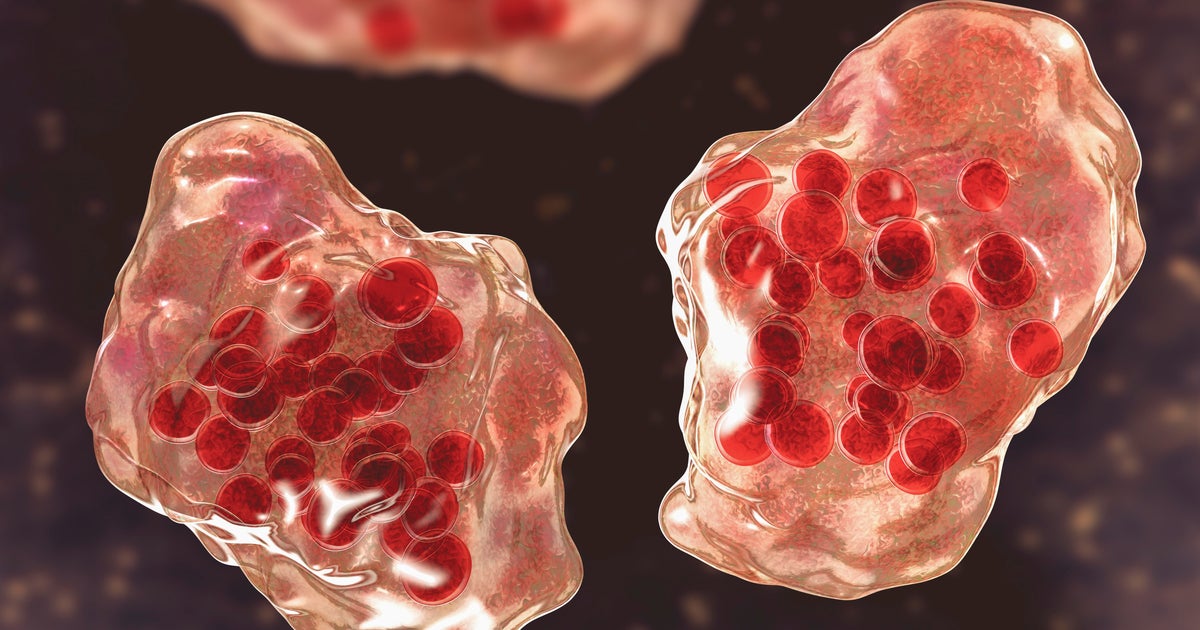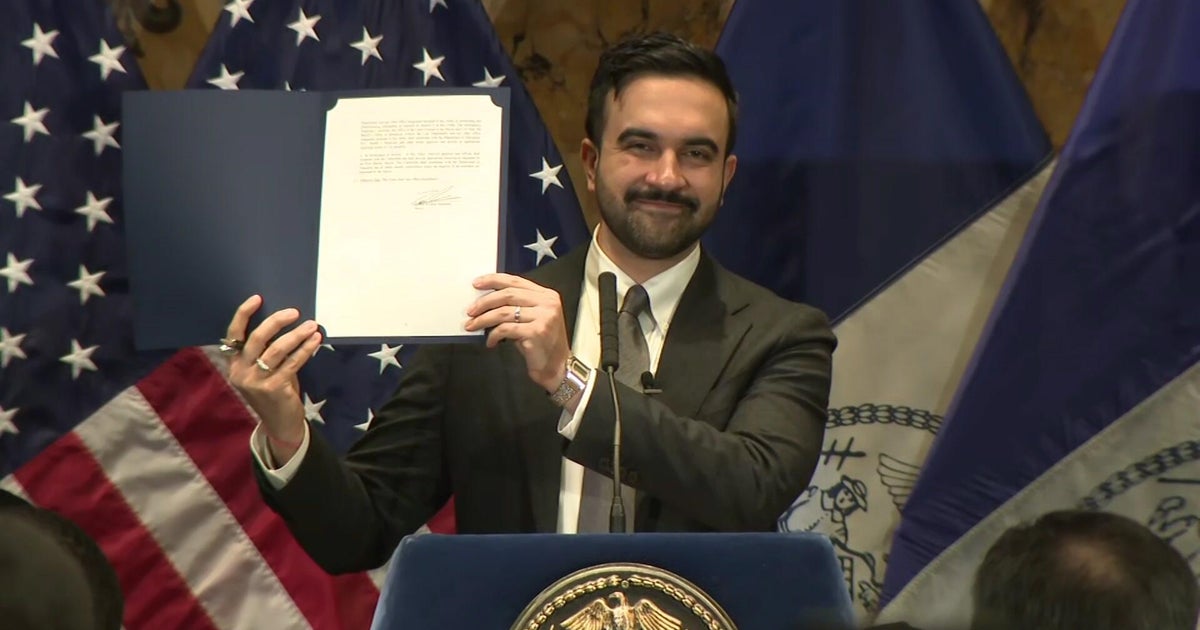Bed Bug Prevention Method Developed In Pennsylvania Seeing Positive Results
Follow KDKA-TV: Facebook | Twitter
PITTSBURGH (KDKA) - Move over stink bugs, bed bugs are back in the prime pest spotlight. They actually never went away, but instead have continued to grow as an issue for anyone who lays their head down at night to sleep.
"Nobody wants to imagine they are lying in a bed and being eaten by bed bugs," said Penn State Entomologist Nina Jenkins, Ph.D.
More specifically, she points out no one likes the thought of, "having their blood sucked by bedbugs."
But, that is exactly what they do and it's for their own survival.
"They have to have a blood meal in order to move from one life stage to the next and in order to reproduce," Jenkins said.
No human want to be a bed bug's IV bag, but here's a small word of reassurance from Dr. Jenkins, "Bed bugs don't carry diseases of any description."
"They're out there and they're everywhere," said Pestco Professional Services' Executive General Manager Jeff Petti.
Most people associate bed bugs with hotels, but Petti's company treats just about any place that has beds, couches, or out-of-town visitors with luggage.
"It's not uncommon, it really isn't [to find them]," Petti said.
The reality is just the mention of bed bugs makes people squirm.
"They kind of give you the heebie jeebies," said Conidiotec CEO Don McCandless.
Conidiotec is the company formed by McCandless, Jenkins, and Giovanni Bellicanta, Ph.D., another entomologist at Penn State after they developed a revolutionary bed bug prevention concoction.
More Information:
Called Aprehend, Jenkins said even they were surprised when they tested it on bed bugs.
"We were astonished at how well our technology works for this pest," Jenkins said.
Without getting too technical, Jenkins and Bellicanta figured out a way to bring a natural fungus found in soil called Beauveria bassiana inside safely.
While it's commonly used in agricultural battles against insects, Jenkins said, "This formulation is different. It's specifically designed to be used inside homes. It is harmless to humans and pets."
In the hands of a pest control expert, Aprehend is sprayed in about a 2-inch wide band around the baseboard, mattress, and headboard of a bed.
The spray continues "at least 24 million spores per square inch," said Bellicanta.
It creates sort of a bed bug barrier and when the bug walks through, it gets coated in the spores.
"They try to shake them off and the more they try to get rid of them the more they pick up," Bellicanta said.
Being communal by nature, the now distraught bed bug heads for its den and proceeds to spread the spores to all the other bed bugs. Within days, the spores have penetrated the bugs and killed them.
McCandless says the pest control world has seen their results and has only one question.
"The biggest question is when can we get it?" McCandless said.
Petti's Pestco was the first to get a batch in western Pennsylvania and said the big drawing card is Aprehend's longevity.
"Bed bugs coming into contact with the fungal barrier we'd put down, even three months later, die of the fungal disease," Jenkins said.
To Petti, that means his company can offer something new, protection.
"This lets us do a preventative treatment that last three months," Petti said.
The trio at Conidiotec are currently the only employees of the company. They are filling orders as fast as they can work out of their small warehouse workspace north of State College.
It's important to point out this is not a home remedy and is only available through professional pest control companies who have to be trained how to put down the barrier spray.
While the pest controllers can use Aprehend as a preventative measure, in the case of a known infestation, it's designed to be a follow-up preventative after conventional methods are used to kill the bugs that can be found.
Finding The Bugs
While with the bed bug experts KDKA-TV's John Shumway learned a lot of people have misconceptions about how bed bugs get around and where they hide.
"[Having a bed bug problem] has nothing to do with cleanliness, it has nothing to do with sanitation. They are totally a hitchhike bug," Petti said.
In fact, he calls them the laziest bug on the planet.
"Bedbugs are amazing. They are very efficient hitchhikers," Jenkins said.
When you are in the bed, they are drawn to you by your body heat and carbon dioxide you breathe out. But, it's your suitcase they use for travel.
"We think they are attracted to dirty laundry, in fact," Jenkins said.
When you are staying somewhere, there are a couple of things to keep in mind. Put all dirty clothes in a plastic bag you keep sealed. If it's avoidable, don't leave your suitcase open on the floor. Bed bugs will climb on board for a ride to the next location and that could be your home.
When you check into a hotel room, Pestco exterminator and bed bug expert Nick Vasco said you need to check the bed thoroughly. Take all the sheets, bedspreads, and pillows off the bed. Check thoroughly the edges of the mattress, bed skirt, box springs, under the box springs, and around the headboard.
"Underneath the bed skirt is a common place for bedbugs to start to establish an infestation," Jenkins said.
"I always find them in the bed skirts," Vasko said.
Vasko said he finds them especially near the head of the bed.
Bed bugs have a couple of places away from the bed where they like to hide. Vasko and Jenkins said bed bugs are away from the mattress and box springs to avoid detection by the hotel housekeeping staff. Those locations are behind the baseboard at the floor level near the head of the bed and more commonly behind the headboard.
Jenkins said the headboard is a prime spot because not only do they avoid detection, but they're in close proximity to you when you settle in for the night.
"Overnight, that's where they creep out from to get to the human host," Jenkins said.
Jenkins said people rarely feel the bite because the bed bug administers a local anesthetic first. Instead, you wake up with welts from the bites and wonder how it could have happened.
An Unwanted Souvenir
Bed bugs are so small they can climb aboard your suitcase and you will never know it. Vasko said when you get home, don't take your suitcase to your bedroom.
"When you come home from a trip from a hotel, bring that luggage in and do the wash right away. Heat kills 'em. Thirty minutes of heat in your dryer will protect you from bringing anything into your house," he said.
What about your suitcase?
"I would keep it in your garage," he said.







